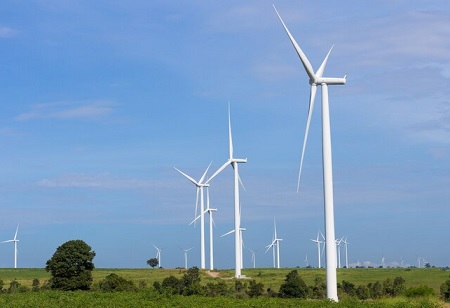
SSE's Japanese Unit Targets 6GW Offshore Wind Farm Development

 SSE Pacifico, the Japanese subsidiary of the UK energy group SSE, is setting ambitious goals to develop 6 gigawatts (GW) of offshore wind farms in Japan. The move aligns with Japan's national strategy to become a significant offshore wind power producer, targeting 10 GW by 2030 and up to 45 GW by 2040 as part of its decarbonization efforts.
SSE Pacifico, the Japanese subsidiary of the UK energy group SSE, is setting ambitious goals to develop 6 gigawatts (GW) of offshore wind farms in Japan. The move aligns with Japan's national strategy to become a significant offshore wind power producer, targeting 10 GW by 2030 and up to 45 GW by 2040 as part of its decarbonization efforts.
Established in 2021 as a joint venture, SSE Pacifico is a collaboration between SSE Renewables, holding an 80% stake, and Pacifico Energy, a local partner with a track record of developing 1.3 GW of solar power since 2012, owning the remaining 20%.
SSE Pacifico President Dai Karasawa revealed the company's official target of delivering a 6 GW pipeline of projects. However, he did not provide a specific timeline or disclose cost details. Karasawa aims to bring one project per year to state auctions starting from the latter half of this decade.
The project pipeline includes a 0.5 GW offshore wind project off the coast of Mihama in Wakayama prefecture and another 0.5 GW project off Omaezaki in Shizuoka prefecture. Karasawa expressed confidence in the probability of securing awards once these sites are designated as auction areas, citing ongoing discussions with local stakeholders.
SSE Pacifico's unique strengths lie in the combination of Pacifico Energy's ability to manage local stakeholders and SSE's expertise in engineering and procurement. Karasawa outlined that approximately half of the targeted 6 GW capacity will involve fixed-bottom types, with the remainder utilizing floating technology.
Japan introduced a new law in 2019 to foster offshore wind farm development. Despite having less than 0.5 GW of installed offshore wind capacity currently, the government plans to subject about 1 GW of offshore wind projects to state auctions annually until 2030.
SSE Pacifico's announcement follows the recent participation of Germany's RWE in Japan's offshore wind sector, marking the first foreign company to join successful consortia in the second round of auctions. Karasawa expressed openness to potential partnerships, emphasizing efficient split roles as a key criterion for collaboration.
Japan's progress in offshore wind has faced delays, with auction rules undergoing revisions in response to business criticisms highlighting a lack of clarity in the initial round. The government aims to address these issues to accelerate the expansion of renewable energy, making offshore wind a pivotal component of Japan's sustainable energy landscape.

